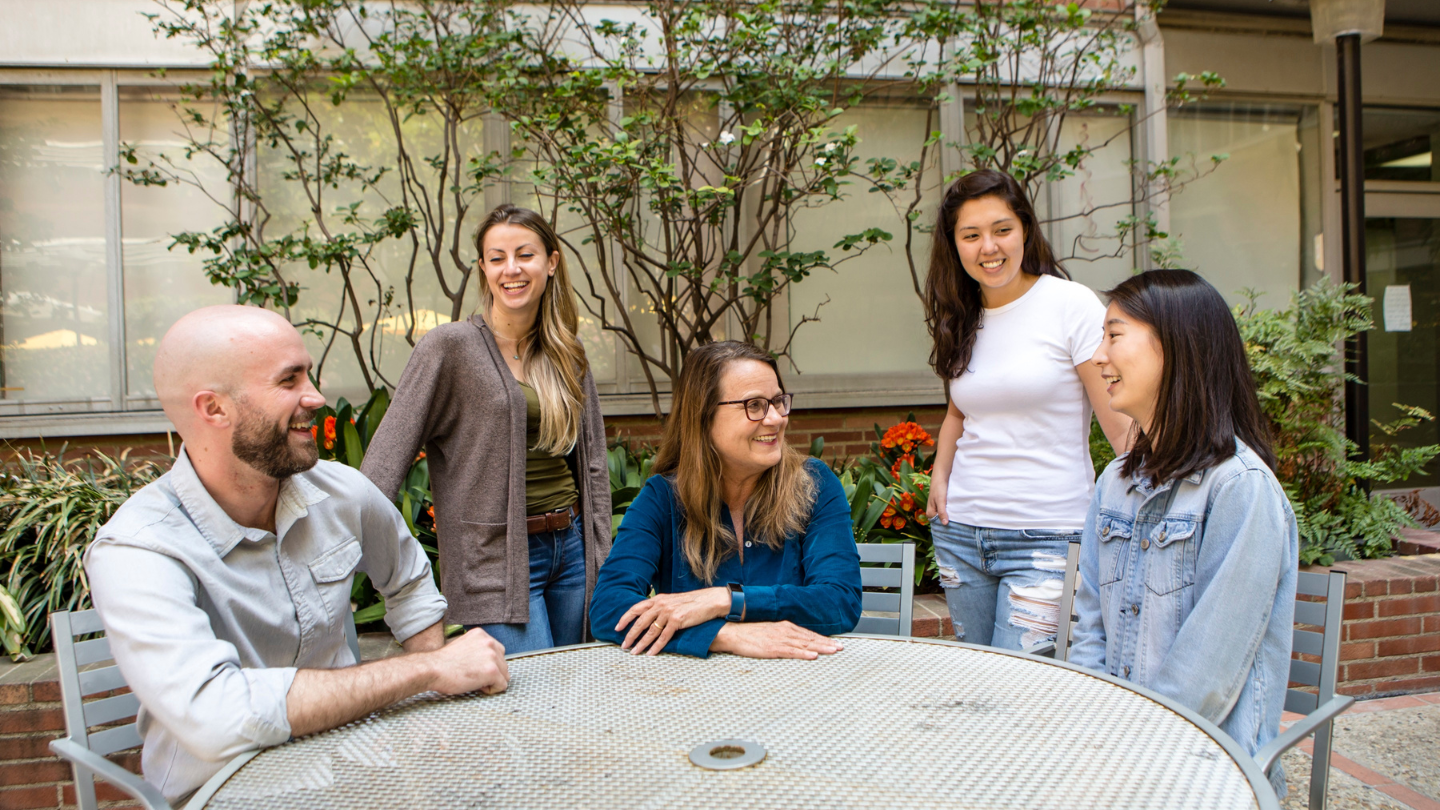Community Health Sciences Degree Programs

The UCLA Fielding School of Public Health offers four degree programs in community health sciences:
-
MPH in Community Health Sciences
The MPH in Community Health Sciences, a two-year professional degree, integrates basic and applied approaches to addressing public health problems in the community. Students learn about the fundamental tools of assessment, planning, and evaluation of public health programs through coursework on topics that include health equity/disparities, health education and promotion, reproductive and population health, global health, and health across the lifespan. They also gain experience through field placements in the U.S. and abroad — typically in the summer between their first and second year — and have the opportunity to participate in research with faculty and within the school’s research centers.
Learn More & Apply -
MPH for Health Professionals in Community Health Sciences
The MPH for Health Professionals in Community Health Sciences enables working professionals to earn a master’s degree in public health through a two-year, executive-style program in which they attend classes one weekend per month. The fast-paced, student-centered program trains up to 25 new students each year in community health, health education, and health promotion through the sharpening of skills in program planning, implementation, and evaluation. The work experience and wide-ranging expertise of the executive program’s students — representing various public health roles, as well as other professions — leads to lively and informative exchanges.
Learn More & Apply -
MS in Community Health Sciences
The MS in Community Health Sciences, a research-oriented degree often pursued as the first step toward a PhD, equips students with the skills to design and conduct research in the community, as well as creating and evaluating programs. Students learn the fundamentals of biostatistics and epidemiology, and become well-versed in topics that include health equity/disparities, health education and promotion, reproductive and population health, global health, health across the lifespan, and research methodology. They complete either a research project leading to a master’s thesis, or the department’s comprehensive examination along with a major written report on a topic of the student’s choice. Many students participate in research with faculty and within FSPH research centers.
Learn More & Apply -
PhD in Community Health Sciences
The PhD in Community Health Sciences prepares students for research-intensive careers, whether in academia or as leaders of organizations that conduct research. Students typically enter the program with a master’s degree and start with at least two years of coursework integrating basic and applied approaches to addressing public health problems in the community through assessment, planning, and evaluation. This is followed by work on their doctoral dissertation, focusing on a topic area of their choosing, under the guidance of faculty mentors and often in collaboration with a community organization or public health agency.
Learn More & Apply
Given the interdisciplinary nature of community health sciences, students in the department may choose to pursue any of a number of concurrent and articulated degree programs offered through the CHS department. Combining the MPH with either an MA in African Studies, an MA in Asian American Studies, an MA in Latin American Studies, an MD, a JD, a Master of Social Welfare, or a Master of Urban Regional Planning enhances graduates’ marketability while allowing them to take advantage of the overlaps and synergies to complete two advanced degrees in a shorter period of time than if they had pursued them separately.
The 400-hour applied practice experience requirement gives students invaluable experience applying the tools they have learned in their core coursework. Students can choose from the rich array of opportunities available in Los Angeles, or can go outside the region to other U.S. cities or overseas — with the department’s strong community ties both at home and abroad opening up a wealth of options. These hands-on experiences can involve evaluating programs, designing curricula, developing workshops, conducting needs assessments, or working with an advocacy organization. The internships, in which students are supervised by an experienced preceptor in conjunction with the department’s field studies director, benefit the department’s community partners while providing critical real-world training for the students, often leading to employment after graduation.